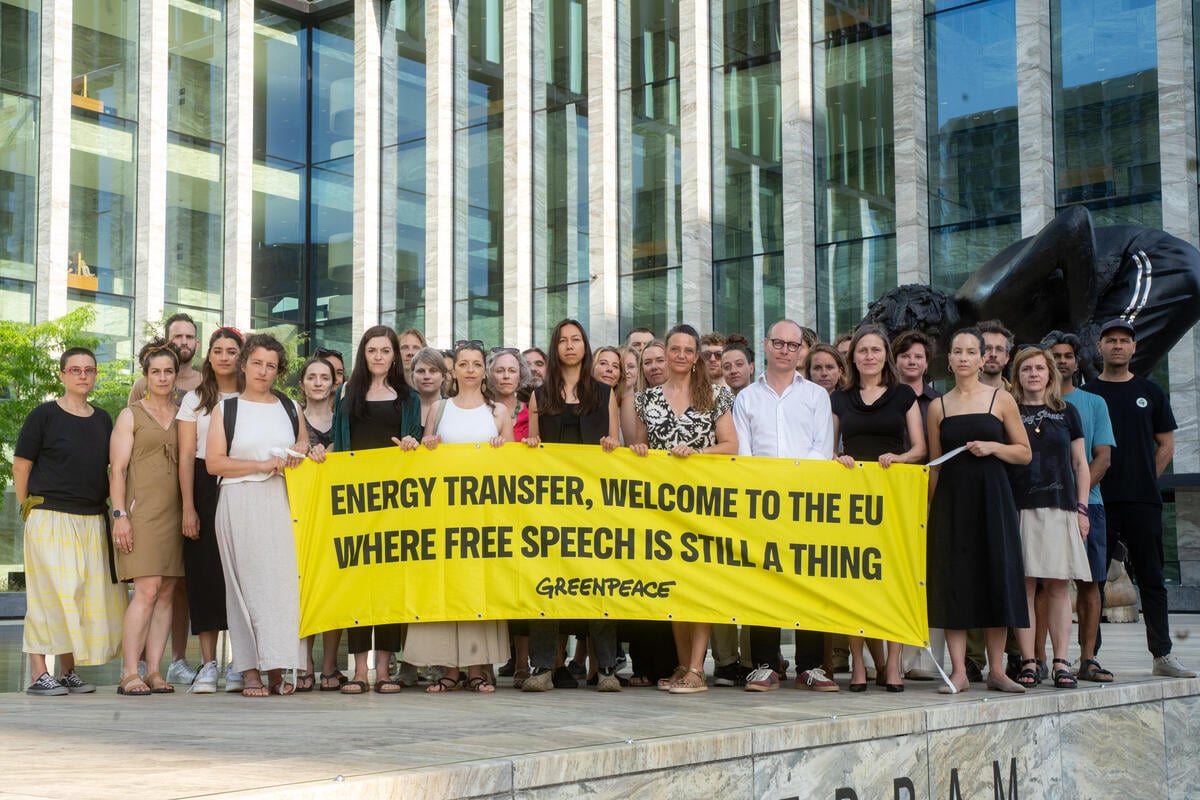Montreal – Oil and gas companies are pumping millions into academic research, influencing the priorities and scope of critical research areas, according to “Bad Cheques,” a new Greenpeace Canada report. In the last decade, oil and gas companies matched or exceeded 31 million dollars in federal government funding for university Industrial Research Chairs working on fossil fuel projects, in addition to millions more for other research grants and donations. Compare this to Industry Research Chairs for alternative energy projects that received only $100,000 in the last 10 years.
“It’s a terrifying realization that fossil fuel companies are influencing academic research on energy efficiency and climate mitigation, as well as diverting top minds toward research on ways to increase oil and gas extraction at a time when science tells us we need to be transitioning rapidly away from fossil fuels,” says Nola Poirier, senior researcher and writer for Greenpeace Canada.
The report delves into the extensive investment by the fossil fuel industry in Canadian universities, particularly in areas of oil and gas extraction and emissions, drawing a concerning parallel to the historical precedent of tobacco companies funding medical research. A further concern is that the proximity of fossil fuel money taints essential climate and energy research from these departments and institutions. Fossil fuel funding can influence research topics, tilting them towards interests aligned with the industry, such as research focused on dubious and industry-supported carbon capture and storage as a climate solution, over more promising renewable energy technologies.
“Academic research is meant to be independent and evidence-based. But oil and gas companies are not neutral. They have a vested financial interest in fossil energy, in maintaining the status quo, and they have been shown to have willfully delayed and minimized climate action,” said Poirier. “When the fossil fuel industry funds academic research and is able to earmark donations for particular projects it supports, it competes with critical research into accelerating the energy transition and thwarting the worst impacts of climate change.”
This issue is not unique to Canada. In 2022, academics, scientists, researchers from the Intergovernmental Panel on Climate Change (IPCC), and many others signed an open letter calling on universities in the U.S. and U.K. to ban fossil fuel funding in climate change, environmental, and energy policy research. The letter stated, “We believe this funding represents an inherent conflict of interest, is antithetical to universities’ core academic and social values, and supports industry greenwashing.”
Oil and gas companies have been reaping massive profits in recent years, and their deep pockets mean they have the funds available to invest in, and influence, academic research. “In addition to their detrimental impact on critical climate and energy research, these massive fossil fuel investments into academic research serve as a way to legitimize oil and gas companies, fossil fuels in general, and industry-backed so-called climate ‘solutions’,” said Poirier. “By not only permitting these companies to invest in energy and climate policy research, but in many cases matching the funding, the government is subsidizing industry and sabotaging its own efforts to mitigate climate change.”
In response to these troubling findings, Greenpeace Canada is advocating for an end to fossil fuel money in energy policy and climate-related research, as well as emphasizing the need for alignment with global environmental goals and protecting the integrity of sound climate research coming from Canadian institutions.
ENDS
Notes to media
[1] The english report is available here
For more information, please contact:
Philippa Duchastel de Montrouge, Communications officer, Greenpeace Canada, [email protected]; + 514 929 8227



